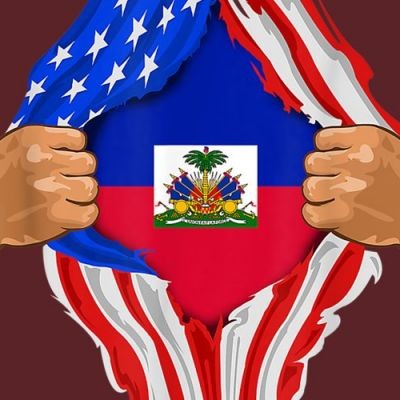Race, Religion, and The Haitian Revolution: Essays on Faith, Freedom, and Decolonization
This new book, Race, Religion, and The Haitian Revolution, explores the intersections of history, race, religion, decolonization, and revolutionary freedom leading to the founding of the postcolonial state of Haiti in 1804. Particular attention is given to the place of religion in this freedom story. The book not only examines the multiple legacies and the problem of Enlightenment modernity, imperial colonialism, Western racism and hegemony, but also studies their complex relationships with the institution of slavery, religion, and Black freedom. This present work is a collection of five interdisciplinary essays, which underscore the role of faith in Black Atlantic discourse and Haitian thought in shaping the lives of the people in the Black Diaspora and the Haitian people in particular. Topics range from Makandal's Postcolonial religious imagination to Boukman's Liberation Theology, Langston Hughes' discussion of the role of prophetic religion in the Haitian Revolution to Frederick Douglass' critiques of Christianity as a "slave religion;" the text also brings in conversation Du Bois's theory of double consciousness with Fanon's theory of decolonization and revolutionary humanism.
About the Author
Celucien L. Joseph, Ph.D. (University of Texas at Dallas) is an adjunct Professor of English Language and Literature at Palm Beach State College. Professor Joseph is an interdisciplinary scholar, researcher, and educator; his work is interdisciplinary and intersectional with an emancipative intent. He is interested in the intersections of history, race, religion, literature, cultural identity, and freedom. He is the author of the forthcoming book, Religious Métissage: The Religious Imagination and ideas of Jean Price-Mars (Wipf & Stock, 2013), and Faith, Secular Humanism, and Social Development: Jacques Roumain's Engagements with Religion and Critical Theory (The University Press of America, 2013). His academic research and teaching interests include the following: Transnational Literature; American and African-American Literature; African American Cultural and Intellectual History; Francophone Studies: Africa and the Caribbean; Anglophone Caribbean Literature; Comparative Afro-Caribbean Studies: History and Literature; Comparative Literature of the African Diaspora; Black Internationalism; Postcolonial and Critical Theory; Race and Religion; Religions in the Black Diaspora; Pragmatic Religious Naturalism; Liberation and Constructive Theologies.























